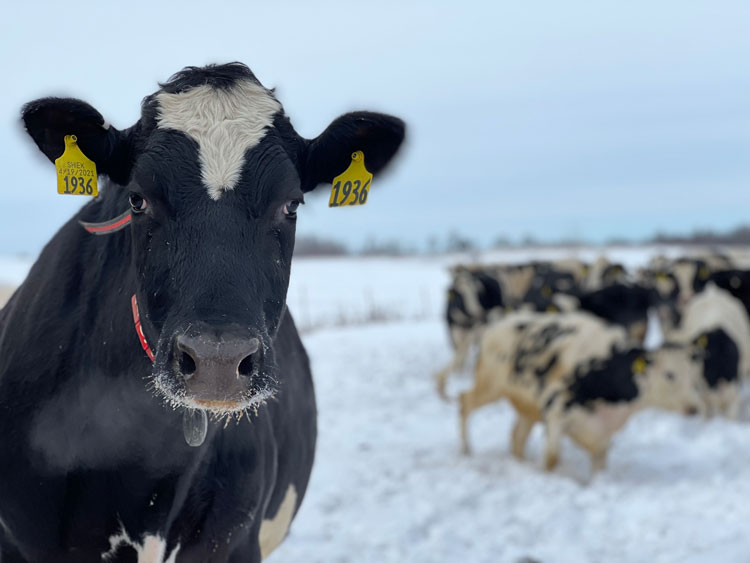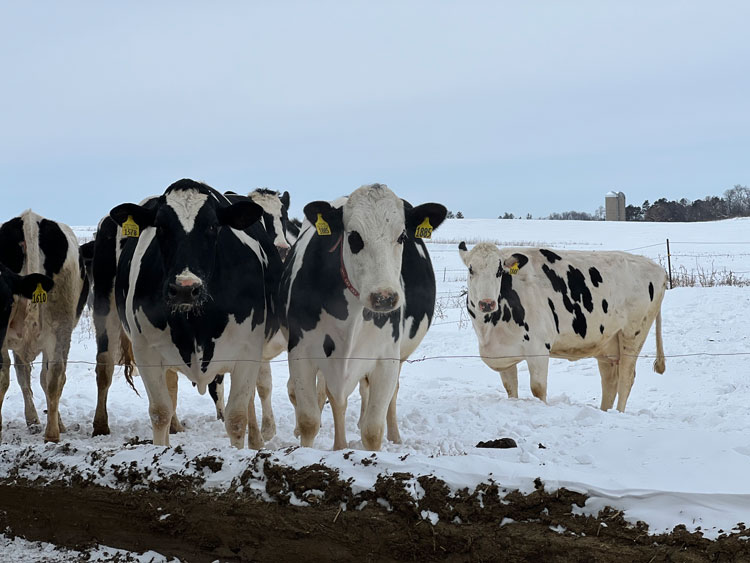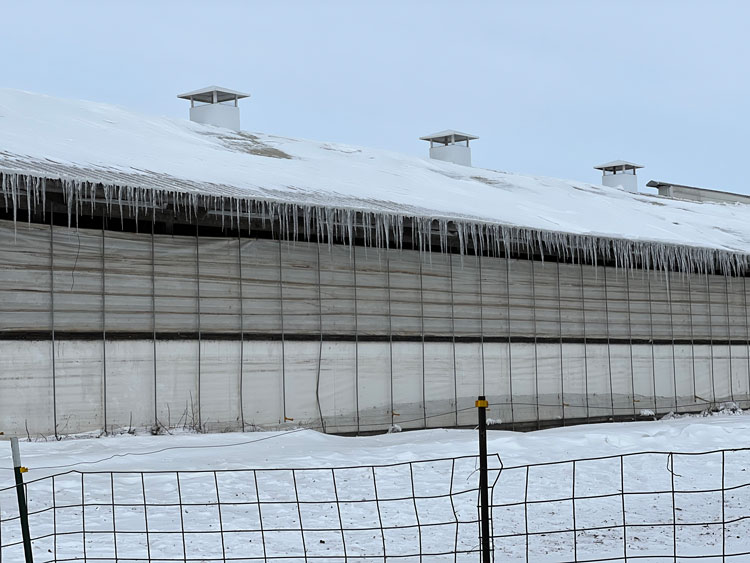
With a week of well below-zero temperatures, substantial snowfall, and windy conditions, farmers in our region have buckled down to ensure our animals fare as well as possible given the extreme weather. I would describe farmers in general as possessing loads of persistence, grit, and patience, which is exhibited even more so during situations like the one we’ve been in as we kicked off 2024 in the Midwest. After a mild December, Mother Nature has brought us winter in full force as we maneuver through January.

Cold and blizzard conditions have meant a lot of extra time keeping up with moving snow and checking cattle waterers to thaw them as needed. We’ve been bedding pens nonstop to make sure all our cattle have dry, fluffy cornstalk or straw to snuggle into to stay warm. For our littlest calves, that also means putting calf coats on or even keeping the calves in the heated milk room to dry off and warm up when they’re born to avoid exposure to the harsh elements outside.
We are walking through all our animal pens multiple times per day to watch for illness and administer medication at the first sign they aren’t feeling well. All our equipment is plugged in or tucked away in the heated shop overnight to make sure everything starts in order to mix feed, scrape manure, and push snow. On the coldest of days, we’ve used round bales to add extra windbreaks for our outdoor pens. We also block the bottom of our overhead doors to each barn with snow to keep wind from getting in and chilling the cattle further.

With most of our cows being milked by robotic milkers, we also have extra measures in place to keep the machines from icing over and freezing up. Our heaters are running on high, and we have a few fans in front of each robotic arm to push the heat toward them. We also have rolling wood panels outside the robot rooms, as well as hanging freezer strips for the cows to walk through to serve as a barrier from the colder temperatures out in the barn. Even with all these measures in place, we do have some icicles to wash off when the temperatures really plummet.
Needless to say, the cold weather makes everything harder and chores take longer. Bundled in layers of socks, jackets, overalls, and heavy boots, we continue to trudge through the snow to make sure our animals are well taken care of.

The author dairy farms with her parents and brother near Hawkeye, Iowa. The family milks approximately 300 head of grade Holstein cows at Windsor Valley Dairy LLC — split half and half between a double-eight parallel milking parlor and four robotic milking units. In the spring of 2020, Molly decided to take a leap and fully embrace her love for the industry by returning full time to her family’s dairy.




